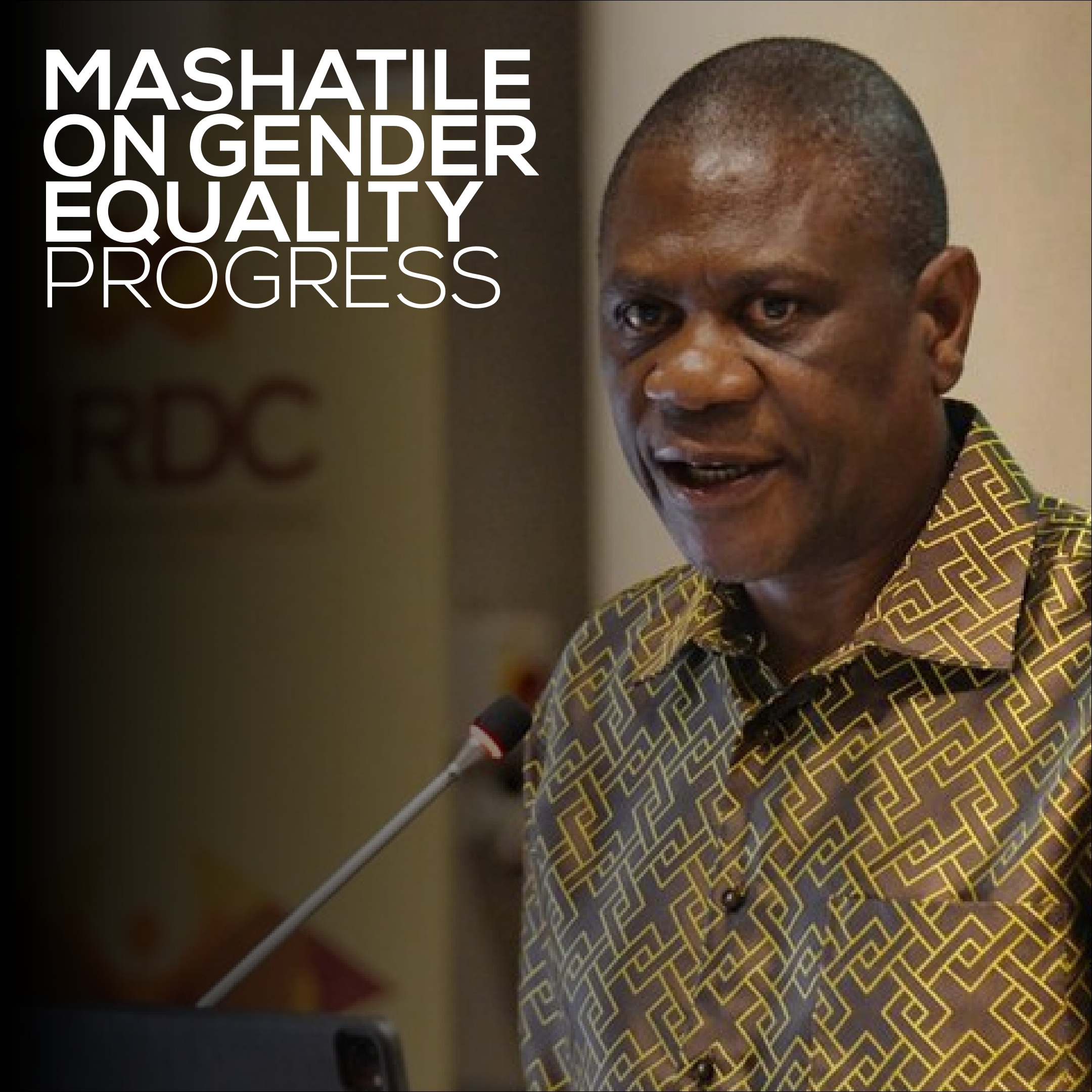
Introduction
In May 2025, Deputy President Paulus Mashatile delivered a landmark address at UNESCO’s headquarters in Paris, highlighting South Africa’s deep commitment to gender justice and equality. His speech, titled Transforming MEN’talities, focused on shifting mindsets, empowering women, and redefining masculinity to end gender-based violence —a powerful reflection of Mashatile gender equality vision and leadership.
Mashatile’s words echoed across the international stage, connecting gender equality to global priorities under South Africa’s G20 presidency — Solidarity, Equality, and Sustainability. His call to transform how societies view gender roles resonated not only within Africa but also among member states worldwide. This article explores seven powerful lessons from the Mashatile gender equality address and how they can shape a more inclusive and just global future.
At the heart of the Mashatile gender equality message is a bold idea — real change begins in the mind. He emphasized that combating gender-based violence requires transforming how men and boys view power, respect, and relationships. “Boys must be raised to care, not to dominate,” he stated.
This philosophy is part of UNESCO’s Transforming MEN’talities campaign, which South Africa has implemented through the agency Higher Health. It aims to challenge toxic masculinity, promote emotional intelligence, and normalize equality at home, in schools, and in workplaces. Mashatile’s approach highlights that gender equality is not just a women’s issue — it’s everyone’s responsibility.
Education remains a central pillar of Mashatile’s vision for equality. He argued that schools must do more than provide academic knowledge; they must shape values, empathy, and respect. Civic education and gender studies, introduced early, can help dismantle stereotypes and foster inclusive behavior.
Through UNESCO partnerships, South Africa is embedding gender-sensitive curricula across its education system. Mashatile noted that when young people learn empathy, respect, and equity early, societies move closer to peace and prosperity. His call is clear: teaching gender equality is not optional — it is essential for building fair and resilient communities.
Mashatile’s UNESCO address also linked gender equality to South Africa’s G20 presidency theme: Solidarity, Equality, Sustainability. He underlined that equality cannot exist in isolation — it connects with economic justice, environmental protection, and social transformation.
By prioritizing women’s empowerment in policy and finance, South Africa seeks to drive inclusive growth across the Global South. Mashatile urged G20 members to ensure that women have access to leadership, education, and entrepreneurship opportunities. Gender equality, he insisted, is not just a moral issue but a strategic investment in sustainable development.
South Africa has one of the highest rates of gender-based violence globally. Mashatile acknowledged this challenge openly, calling it “a national crisis that demands national healing.” His message to UNESCO delegates was one of accountability and hope — that transformation requires courage and persistence.
Under his leadership, South Africa is advancing evidence-based programs that address the root causes of violence, including poverty, patriarchy, and substance abuse. The collaboration between UNESCO, the South African government, and civil society demonstrates how international partnerships can produce tangible results in protecting women and girls.
Mashatile’s speech showcased how leadership grounded in empathy can inspire global movements. He reminded leaders that gender equality must move beyond symbolic gestures to real policy shifts. Governments, he said, must budget for equality, not just speak about it.
This vision aligns with the UN’s Sustainable Development Goal 5, which calls for gender equality and the empowerment of all women and girls. Mashatile’s leadership style — inclusive, evidence-driven, and community-focused — reflects the new generation of African leaders redefining diplomacy through compassion and integrity.
Another critical element in the Mashatile gender equality framework is digital inclusion. He pointed out that the digital divide disproportionately affects women, especially in developing countries. Without equitable access to technology, women risk being left behind in education, business, and innovation.
Through UNESCO and G20 collaborations, South Africa is advocating for digital literacy programs, particularly for women and girls. Mashatile emphasized that bridging the digital gap is key to achieving gender equity in the 21st century. Technology, he said, should empower, not exclude.
In his closing remarks, Mashatile reminded the world that gender equality is not an African issue — it is a global imperative. He called on all nations to share best practices, support social change initiatives, and ensure that equality becomes part of every international agenda.
His message to UNESCO and G20 member states was powerful: societies cannot progress when half of their population is held back. The Mashatile gender equality vision challenges everyone — from policymakers to parents — to transform values, attitudes, and institutions toward fairness and respect.
Q1: What is the main goal of the Mashatile gender equality initiative?
To transform mindsets, promote women’s empowerment, and eliminate gender-based violence through education and cultural change.
Q2: How does the Mashatile gender equality vision align with UNESCO’s mission?
It aligns perfectly by advancing inclusive education, social transformation, and equal opportunities for all genders.
Q3: Why is Mashatile gender equality linked to the G20 presidency?
Because South Africa’s G20 priorities — Solidarity, Equality, Sustainability — all depend on gender justice and inclusive growth.
The Mashatile gender equality address at UNESCO was more than a policy statement — it was a moral call to action. By connecting gender justice with education, leadership, and global cooperation, Mashatile positioned South Africa as a leading voice for inclusive development.
His message reminds the world that equality is not achieved through speeches but through shared responsibility, education, and empathy. When nations act on this vision, they don’t just empower women — they transform humanity.